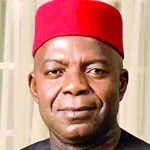...To get all news updates, Join our WhatsApp Group (Click Here)
Also Join our WhatsApp Channel (Click Here)
Industry experts at the weekend expressed concern that the call by organized labour to shut down the
Power Distribution and Generation companies over the Multi Year Tariff Order that came into effect in
February would impact negatively on the Power Sector and the nation’s economy.
According to the experts , the planned disruption of the operations may have more severe
consequences than the new Tariff which is aimed at ensuring cost recovery in the power sector value
chain, removal of the fixed charge , encouraging power conservation by focusing on metering before
billing and insisting that consumers are billed for only what they consumed.
Some of the experts argued that any disruptions at this time would negatively affect the steady progress
being made in the sector in spite of challenges posed by gas pipeline vandalism and other acts of
sabotage recently being recorded in the petroleum and power sector.
It would be recalled that on February 2, the Nigerian Electricity Supply Industry sent out a peak of
5,074MW at 2130hrs – a record setting figure that displays significant improvement in the capacity of
the transmission system. This is the highest figure ever recorded by the industry in recent times.
The total energy sent out on February 2, 2016 was also a record setting figure of 109,372.01MWH (an
average of 4447.88MWh/h).
According to industry statistics, the past three months has seen a series of record setting figures and
incremental growth in spite of very challenging operational environment, with the previous peak figure
achieved being 4,883MW on 21:15h on November 24 2015, and the previous maximum total energy
sent out achieved on January 27, 2016 being 107,142.32MWH.
The experts noted that though a lot of work remains to be done, such record breaking figures are only
achievable due to the coordinated efforts of all stakeholders in the country, from gas suppliers,
generating plants, the Transmission Company of Nigeria, distribution companies and all citizens who
have been patient with the industry as work towards improving the sector has been intensified under
the leadership of the Minister of Power, Works and Housing, Mr Babatunde Fashola, SAN.
The progress and the fresh investment drive into the sector being aimed at with the tariff order may be
jeopardized by any poorly considered call for street protests or shut down of operations rather than
dialogue , an Energy expert noted.
Legal practitioners who also spoke with our correspondents expressed the view that the subject of
change in tariff was not a matter for labour agitation. According to them, the statutory objective of a
trade union recognised under the Trade Unions Act is to regulate the terms and conditions of
employment of workers. Price determination is a product of market forces. Electricity is like any other
product and its price reflects its cost of production.
Following the privatisation of the electricity sector, the distribution and generation aspects of the
industry are now in the hands of private investors. Consequently, price is now determined by market
forces in accordance with the provisions of applicable laws.
The law that regulates changes in tariff is the Electric Power Sector Reforms Act and it empowers the
Nigerian Electricity Regulatory Commission to allow a licencee to recover the “costs of its business
activities, including a reasonable return on the capital invested in the business” and “provide incentives
for the continued improvement of quality of services” in the country.
You can get every of our news as soon as they drop on WhatsApp ...To get all news updates, Join our WhatsApp Group (Click Here)
Also Join our WhatsApp Channel (Click Here)














